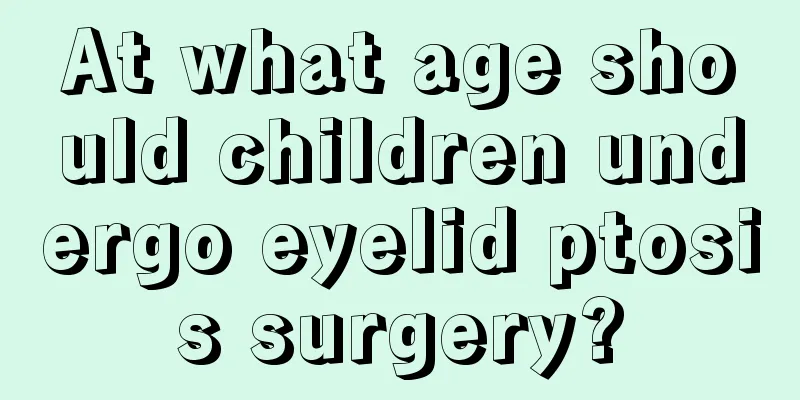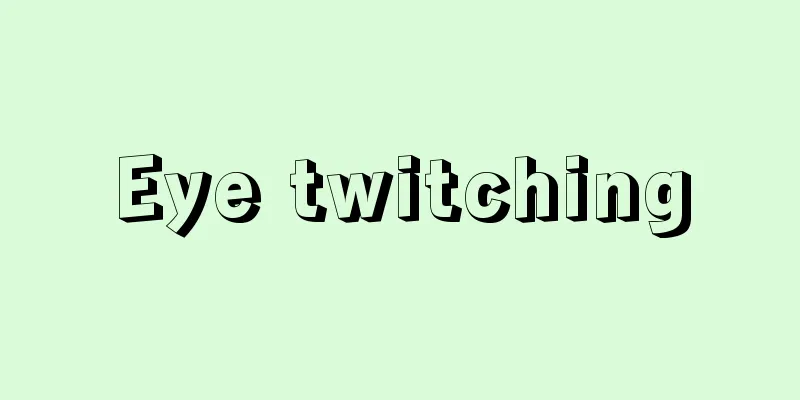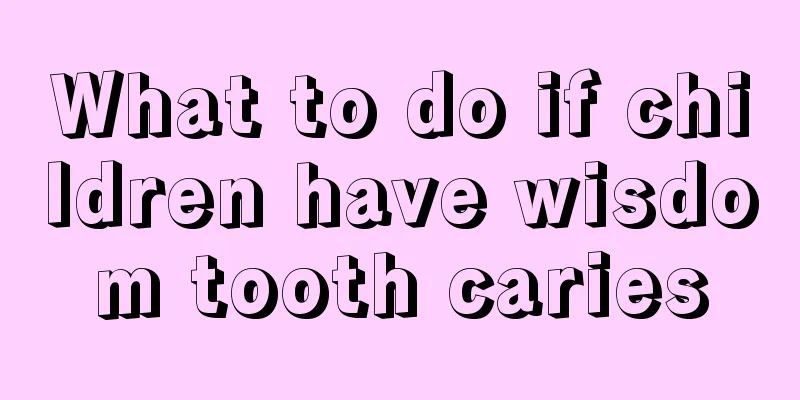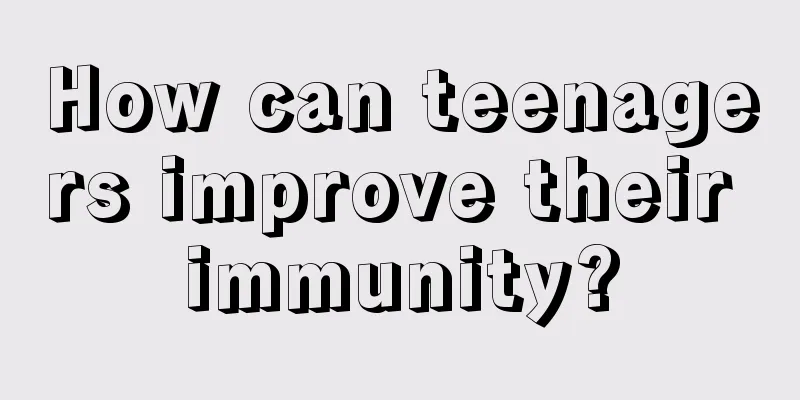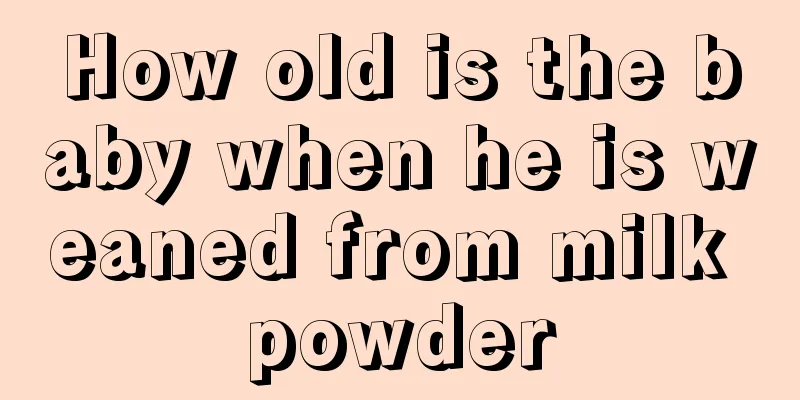Why does the child keep hiccuping?

|
Hiccups in children can easily affect their concentration and patience. If they hiccup while eating or going to school, they are likely to cry. Normally, burping helps children digest food. But if the hiccups persist, parents need to pay attention. It is important to pay attention to your child's condition in order to understand the reasons for their hiccups in a timely manner. The following are some references for parents.
1. It often happens right after drinking milk. It may be caused by the baby crying frequently or eating too quickly during feeding, and swallowing a lot of air. 2. Sometimes hiccups can occur when the stomach is cold or you eat raw or cold food. 3. Other less common causes are related to gastroesophageal reflux disease and diseases such as pneumonia, or to adverse reactions to drugs. Some pregnant women may feel their baby burping in the second or third month of pregnancy, or see the baby burping in the mother's belly during a prenatal ultrasound examination. However, the most common age for babies to experience frequent hiccups is in the first few months after birth, and it usually improves after one year old.
1. If the hiccups and milk regurgitation are caused by "gastroesophageal reflux", you can let the baby stand upright on an adult's shoulder to pass gas after feeding, and do not let the baby lie flat within half an hour. After 4 months old, you can add rice flour or wheat flour to increase the viscosity of the milk to prevent hiccups. 2. If your baby hiccups because of an allergy to cow's milk protein, you can use a special formula as directed by your doctor. 3. Feed your baby in a quiet state and environment. Never feed your baby when he is extremely hungry or crying loudly. 4. The feeding posture should be correct, and avoid feeding too hastily, too quickly, too cold, or too hot. 5. When your baby hiccups, you can use toys or soft music to divert and attract the baby's attention to reduce the frequency of hiccups. 6. Let your baby take a break while drinking milk. Let your baby stand upright on your legs and gently pat his back to pass gas. Burping can help avoid continuous hiccups.
1. If the baby's hiccups are caused by cold, the mother should first pick up the baby, then gently pat his little back, feed him some warm water, cover his chest or belly with warm clothes and blankets, etc. 2. If the baby's hiccups are caused by drinking too much milk or too quickly or the milk is cold, pick up the baby and stimulate the soles of his feet to make him cry. This can suddenly stop the baby's diaphragm contraction and stop the hiccups. 3. Mommy can also pick up the baby who keeps hiccuping and gently tickle the baby's mouth or ears with the tip of her index finger. Once the baby starts crying, the hiccups will naturally disappear. Because the nerves around the mouth are more sensitive, tickling can relax the nerves around the baby's mouth and the hiccups will disappear. 4. Mommy can also try playing music for the baby, or constantly teasing the baby with toys when the baby hiccups, so as to divert the baby's attention and stop the hiccups. |
<<: Lumbar curvature in children
>>: What to do if your newborn baby hiccups continuously
Recommend
What’s wrong if my baby has very little bowel movement?
People are always full of joy when a baby is born...
What are the symptoms of enlarged adenoids in children's nose
Adenoid hypertrophy is a common symptom in childr...
Can babies swim? Is swimming good for babies?
Newborn swimming is a health care activity mainly...
The baby fell headfirst to the ground
If a baby falls headfirst, people must pay attent...
Is it normal for a 10-year-old girl to have her period?
As people's living conditions are getting bet...
What is the reason for the peeling of the skin on the child's fingers?
Children's skin is relatively delicate, so if...
Yellow discharge in newborn baby
After the baby is born, mothers pay attention to ...
What food should children eat when they have diarrhea? Several foods can improve diarrhea
Children should pay special attention to their di...
What are the physical methods for reducing fever in babies?
Some babies have problems with colds and fever, s...
What is the normal body temperature for a newborn?
Generally speaking, the normal body temperature o...
What's wrong with a two and a half year old child who can't speak?
Parents are very concerned about their children&#...
What should I do if my baby has a bad stomach and vomits?
When your baby vomits due to stomach discomfort, ...
Why do children have thick white tongue coating?
Why do children have thick and white tongue coati...
What causes shortness of breath in children?
There are many possible reasons why a child may b...
What to do if your three-year-old child has strabismus
Watching TV and playing with mobile phones for lo...
